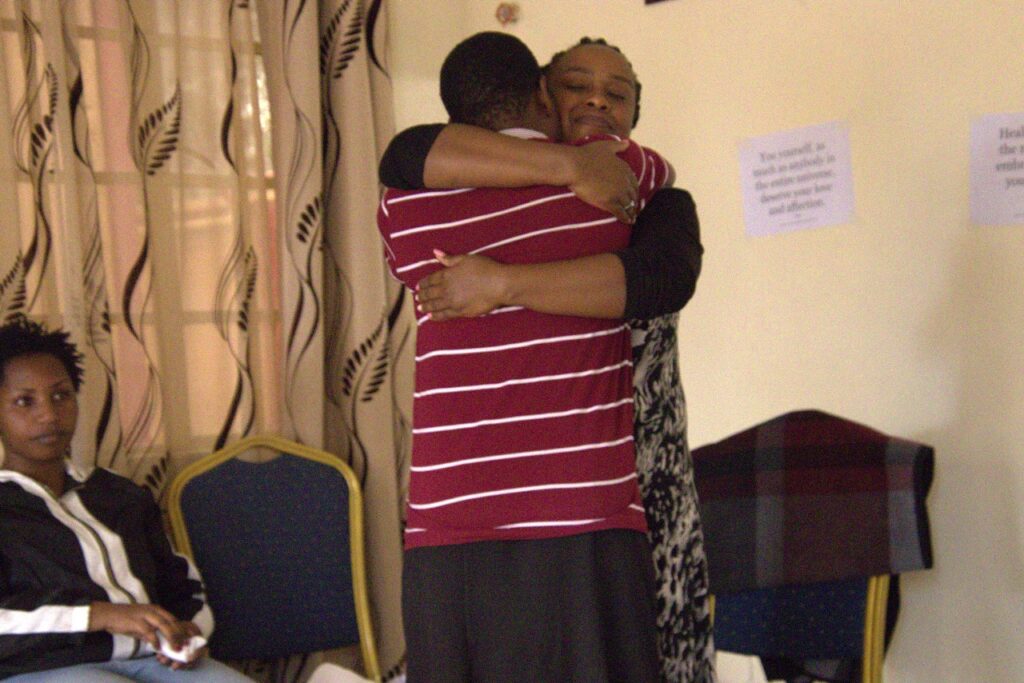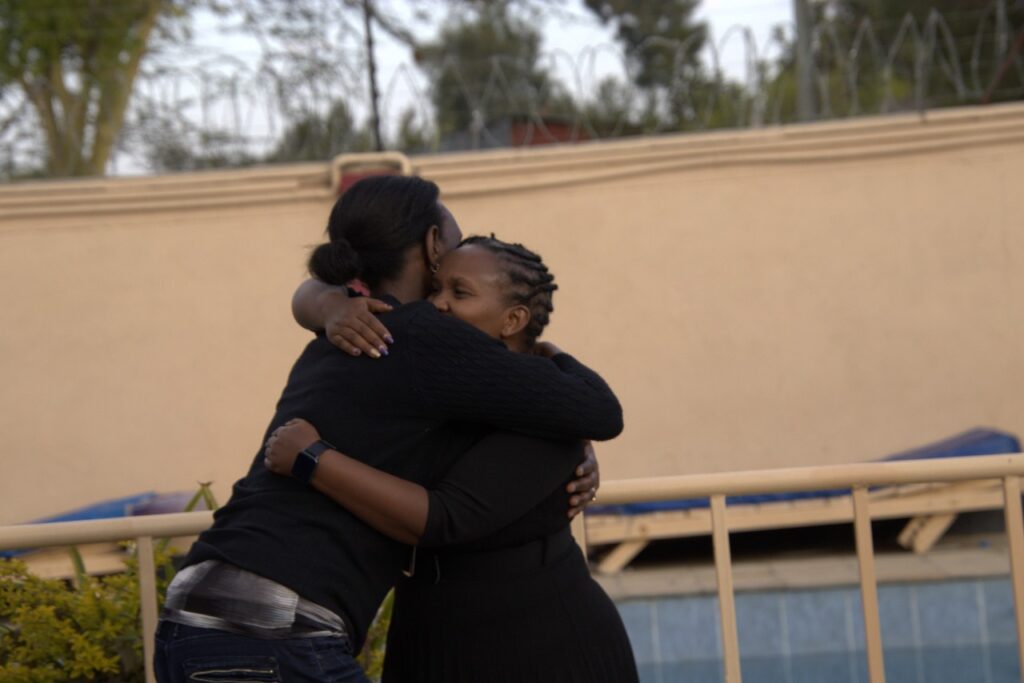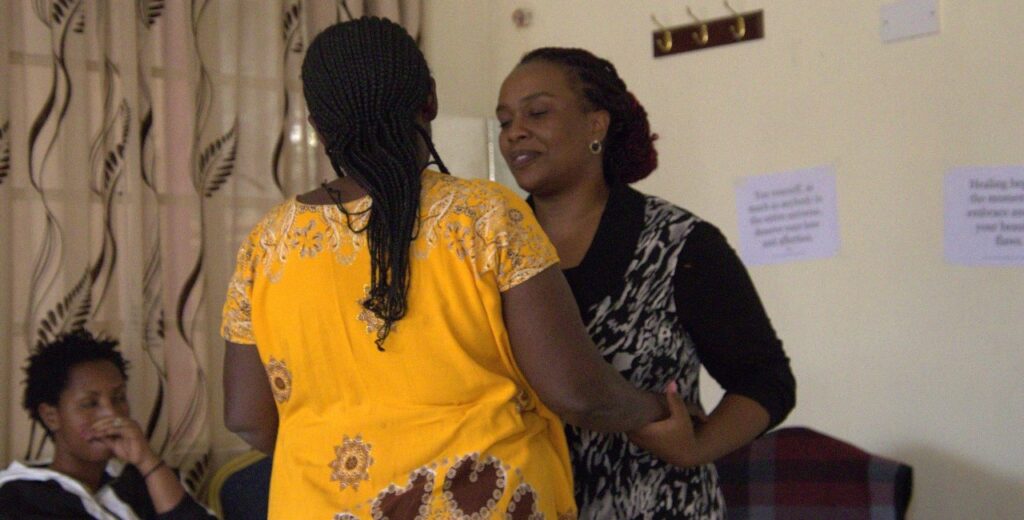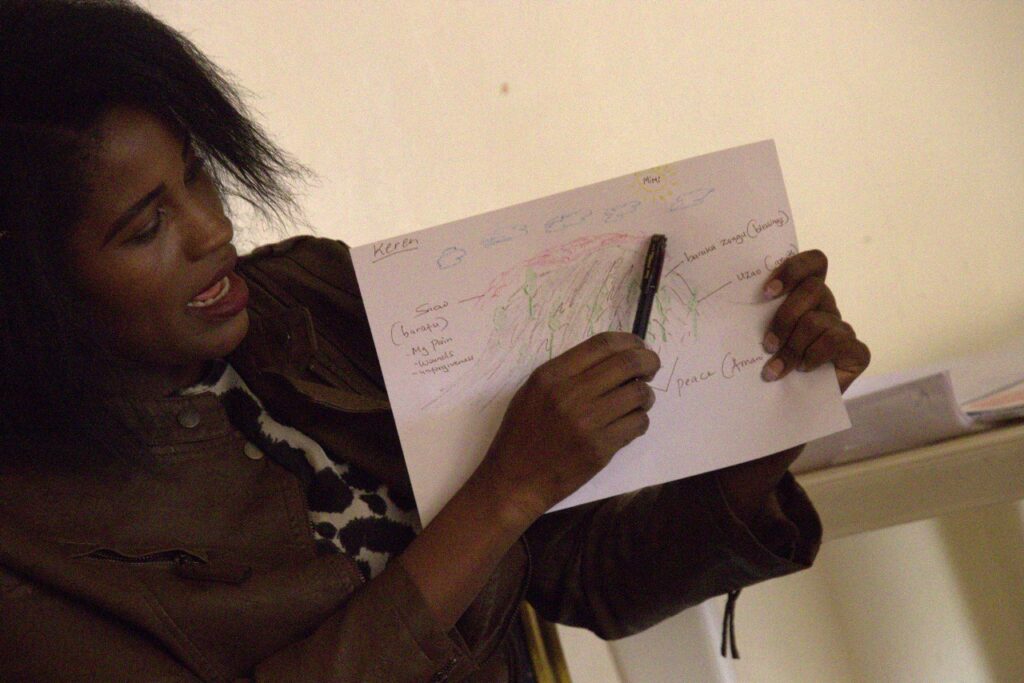
On the second and third day of the workshop, forgiveness took the center stage! It Is always ‘the elephant in the room’ when it comes to conversations about healing. The moment the topic was introduced, that train got off the rails pretty quickly. Almost every participant had something to say about what forgiveness is and is not! It was not a surprise for the facilitators since the concept of forgiveness has been very misunderstood, and has been surrounded with misconceptions and all sorts of myths. It was also very clear that a sensitive nerve had been touched in their lives. Given the magnitude of damage that most of them have survived in the face of war and the effects of war, the idea of forgiveness, particularly in the way most of them understood it, was difficult.
They remembered how much they had lost. Their good jobs, their wealth, their families, their comfortable lives, their good schools, their good health, their goals for life…….There was rage in their hearts. And tears in their eyes. They expressed their anger towards all those who caused them harm and deep wounds, many bitterly in tears as they shared their traumatic experiences. It was a difficult moment for all. But with patience, expertise, and professionalism and most importantly with so much empathy the facilitators helped the participants understand how different forgiveness was to other concepts like Trust, Reconciliation, and Justice. Further, they guided them to see how healing is an impossibility without forgiveness.
“Thank you for helping me understand that I can forgive and still allow justice to take its cause. We are always told to forgive, let go and forget. I had a problem with that because, I would want to see justice served to those who killed so many innocent people. My brother was killed with more than 40 other children while at school. The killers were very happy and even recorded themselves bragging about what they did. I don’t want revenge, but I would wish for them to face the rule of law and ensure what happened never happen again.” Shared one of the participants with very heavy emotions.


The silent reflections on forgiving those who had hurt them brought tears in the eyes of many of the participants. They were re-living the moments when they had been hurt or when their loved ones had been hurt.
“I suffered some permanent damage to my leg during the tribal war in my country. Every time it pains me, I remember how I got it, I cannot walk properly because of the challenge. I also have to wear a specific type of shoes due to the injury. I also lost my home and everything I had worked so hard for. I am well educated with a professional career, but my skills were turned into nothing. Even after coming to Kenya as a refugee, they still tried to follow me here. It has been difficult. But yesterday I realized that carrying all that pain only harms me more. I can’t get back what I lost but I can gift myself with forgiveness, healing and a new life. I choose forgiveness for my sake. I choose me. I have forgiven them.” Expressed yet another participant.
They were facing their bitterness, resentments, anger, hatred and vengeance that they had carefully harbored in their hearts.
“My pain, caused by the war, and the people who caused it, have kept me a prisoner to woundedness and pain for years now. I haven’t been able to develop myself. Many times, I have wished for death. I would see it as the only solution to my pain. But thank you for this Healing Conversations workshop for it has given me hope. I have realized that my wounds have remained fresh for all these years because I have never healed. Then, the war is still happening in my country and that adds to my pain. Whenever there is violence, my wounds are triggered, and I must endure a lot of pain thinking about how the people I left behind are doing or whether they are dead or alive. The political demonstrations that have been happening here in Kenya traumatized me as they triggered my memories of war back home. Last night I was able to process all these things and now I understand that healing is a choice I can make. That healing journey is personal, and I can only do what is within my control. I want to heal, and I have decided to forgive everyone who has hurt me so that I can begin healing.”


There was more to their pain. As they reflected on those who had hurt them, many of them remembered and shared the pain of being refugees in Kenya which has added to their physical, emotional and mental health anguish. They remembered how they have been misused by Kenyans who take advantage of their vulnerability; Working for Kenyans who would later refuse to pay them; Partnering with Kenyans for business ventures only for them to be swindled their little earnings; Having their children denied chances at school because, ‘government schools are meant for Kenyans’; seeing their children being bullied at school because they are not ‘Kenyans’. The list was long and depressing.
They remembered how they have been emotionally and sexually abused by Kenyans in the name of offering them help either find justice or get jobs. They remembered how they have been accused of contributing to making cost of living high for Kenyans. They have also been accused of bringing competition to the job market hence being treated with disrespect. They remembered the countless times native Kenyans remind them that this is not their home and that they should go back to their countries.
They remembered how they had been turned into beggars and manual workers even though some of them have great technical and professional skills- but getting work permit is a challenge.


For some, they remembered how the war is not yet over for them. They live in fear of being followed and killed. They must keep on watching behind their back because despite being in Kenya, there is still a threat to their lives and families. They have to keep exercising caution and safety which sometimes comes at a cost as it may involve shifting residences and jobs very frequently. Even in a safe space like the Healing Conversations, they must watch and be careful what they say because they no longer know who to trust or not trust.
There was pain and anguish written all over their faces. The realization that as much as they are no longer at the scene of the war in their countries, they are still emotionally and mentally at war. War with all the challenges they have to face and deal with everyday of their lives. The room was sombre. With a lot of tears in the eyes of many. The soft sobs escalated to weeping and painful screaming for some of the participants. Healing can look and sound messy. And it is okay. The environment was safe to feel the emotions and let them out.